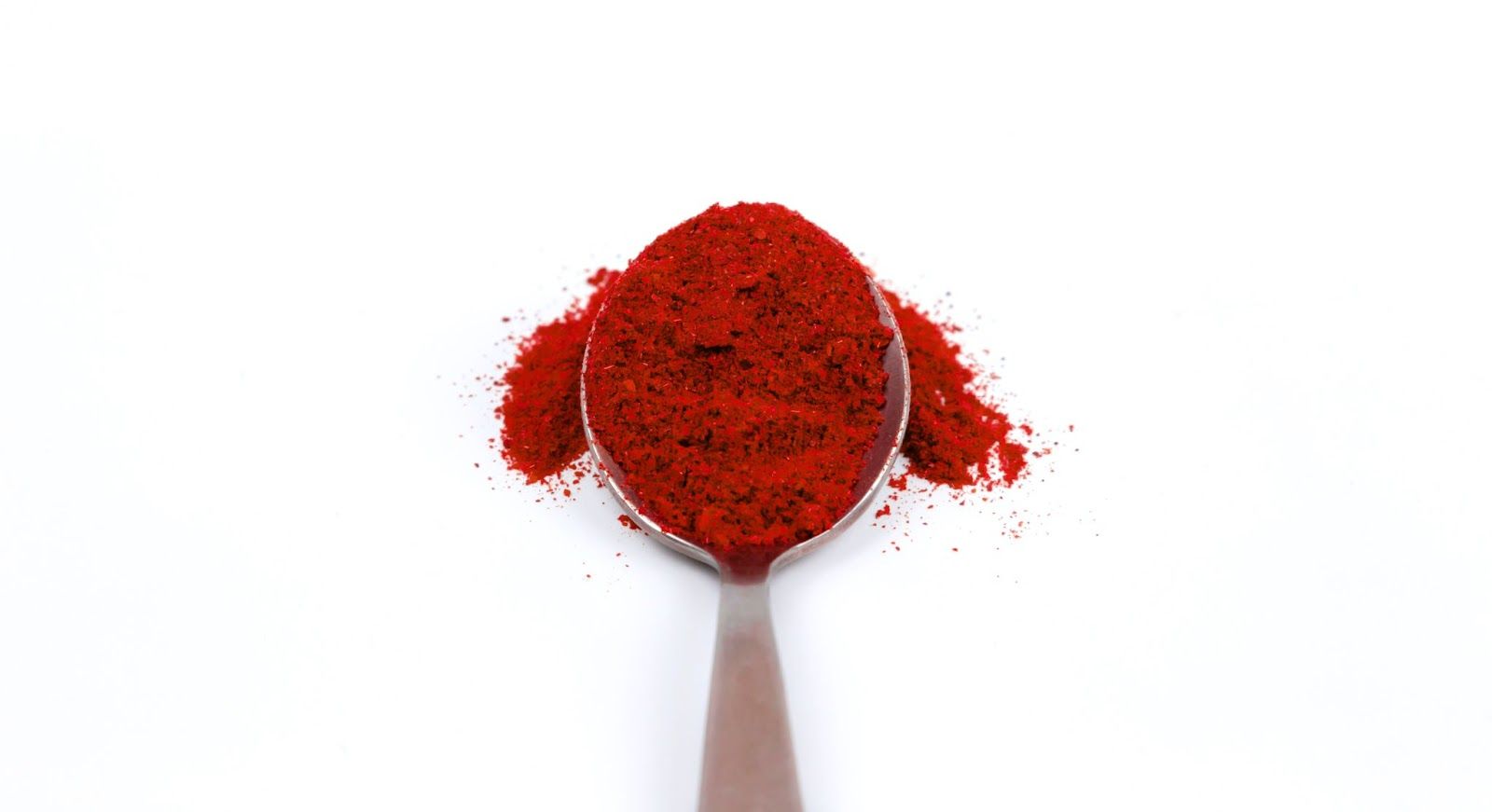Did your pup sneak some paprika, and now you’re wondering if they’re safe? Let’s check out whether or not paprika is a safe choice for your dog.

If you accidentally spilled some paprika on the floor, and your dog licked it up… Or you fed your dog some of your food, and it had a little paprika on it, don’t worry! Paprika is not poisonous to dogs.
Now that doesn’t mean that you should intentionally feed it to them. Keep reading below to find out just what paprika really is. And how it affects the dogs who eat it.
Keep Your Pup Safe and Secure with the Fi Dog Collar
While paprika isn't fatal to dogs, ensuring your pup stays safe from potential hazards is essential. The Fi Dog Collar is designed to track your dog's location, activity levels, and sleep patterns, giving you peace of mind. This GPS-enabled collar offers real-time alerts if your dog wanders outside your set boundaries, ensuring you can quickly locate them.
Whether your pup is exploring the yard or curled up on the couch, the Fi Dog Collar provides valuable insights into their daily activities. Visit TryFi.com today to discover how this innovative collar can help you keep your furry friend safe and secure.
What is Paprika Actually Made of?
“Paprika in its simplest form is made from grinding sweet pepper pods to create the iconic bright red powder. But depending on the variety of paprika, the color can range from a bright orange-red to a deep blood red and the flavor can be anything from sweet and mild to bitter and hot.” Sweet paprika is the standard type of paprika, which is usually just made from sweet red bell peppers.
“On the other hand, hot paprika (aka Spanish paprika), which is made from ground chili peppers or a combination of chili and bell peppers, can have a heat level comparable to other ground red chilies.” And smoked paprika is when the chilies and peppers are smoked before being ground.

Are Dogs Allowed to Eat Paprika?
If your dog eats paprika, it isn’t fatal. Paprika isn’t poisonous to dogs. But it can definitely give them stomach upset—especially if the type of paprika you used was made with chili peppers. Anything spicy will not agree with your pup’s stomach. So let’s try to avoid intentionally giving our dogs anything with paprika on it.

What Kind of Peppers Can Dogs Eat?
“Any color bell pepper contains the essential vitamins and nutrients that are beneficial to a dog’s health.” And red bell peppers are actually the most nutritious of them all because they contain the most vitamins and antioxidants.
Bell peppers are actually quite healthy and make a great treat option for your furry best friend. They contain antioxidants and vitamins A, B6, C, E, lutein, and beta-carotene. Antioxidants are great for your dog’s immune system. And beta-carotene specifically helps with skin and coat health, as well as eye health.
But if you choose to feed peppers to your pup, remember—everything in moderation! Treats and snacks should only make up 10% of your dog’s diet. Even if they are healthy treats. And it’s best to remove the seeds and stems—before feeding your dog any pieces of bell pepper—to help avoid stomach upset and indigestion.
Do Dogs Like The Smell of Paprika?
Your dog may actually avoid food with paprika on it because they may not like the smell. As we talked about before, some paprika is only made from sweet red bell peppers. But other types of paprika contain spicy chilies. And dogs are not big fans of spicy things.
Although some dogs will eat anything, most will avoid the smell of something spicy. Which is helpful for them, since spicy foods and seasonings are not great for their stomachs.

What Seasonings Can Dogs Have?
There are some seasonings that are completely fine for dogs to eat, some that aren’t the best option for them, and others that are poisonous and should be avoided at all costs. But the question is… which are which?
As with any of the “safe seasonings” listed below, they should only be used in very small amounts. Consumption of large amounts of these herbs and seasonings—or inhaling the seasonings—could still be harmful to your dog’s stomach, and may cause coughing, choking, or difficulty breathing.
Please use caution when feeding these to your dog, and do your research about proper amounts ahead of time. And do not feed your dog any of the following seasonings and herbs in the form of essential oils. If you’re still unsure, it’s always best to consult your veterinarian.
Seasonings and herbs that are safe for dogs to eat:
- Anise seeds (not Star Anise)
- Sweet basil
- Chamomile
- Cilantro
- Cinnamon
- Dill
- Ginger
- Mint
- Parsley
- Peppermint
- Rosemary
- Sage
- Thyme
- Turmeric
Seasonings and herbs that your dog should avoid:
- Allspice
- Bay leaf
- Cayenne
- Cocoa or cocoa powder
- Chives
- Cloves
- Curry
- Garlic (especially dried or powdered)
- Hops
- Marjoram
- Mustard (seed or powder)
- Nutmeg
- Onion (especially dried or powdered)
- Oregano
- Pumpkin pie spice
- Salt
- Spanish thyme
Although paprika is not poisonous to dogs, it would typically wind up on the “seasonings to avoid” list because it could contain spicy chilies. And because of that, it could cause stomach upset like vomiting, diarrhea, and gas. So it’s best to try to avoid any situation where your dog might eat paprika.
Conclusion:
In conclusion, paprika, especially made from chili peppers, can cause digestive upset in dogs. Dogs can eat bell peppers, which are nutritious for them, but in moderation. Some seasonings, like basil and turmeric, are safe for dogs in small amounts. However, others, such as cayenne and garlic, should be avoided. Consult a vet for proper feeding guidance. For more pet care insights, visit TryFi.com, and consider the Fi Dog Collar for tracking your pet's location and activities.
For more helpful articles about pet-parenting tips, check out the Off Leash blog at TryFi.com.
Want to know more about TryFi.com? The Fi Dog Collar is a GPS-tracking collar that not only keeps track of your dog’s location, activity levels, and sleep patterns, but it also alerts you if your dog escapes your backyard. This is the fastest way to find your dog after an escape. Try the Fi Dog Collar today!




